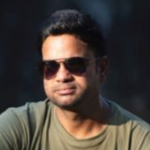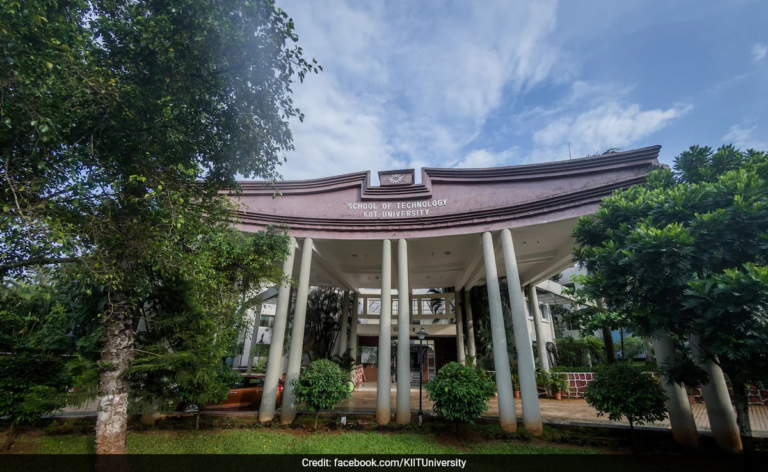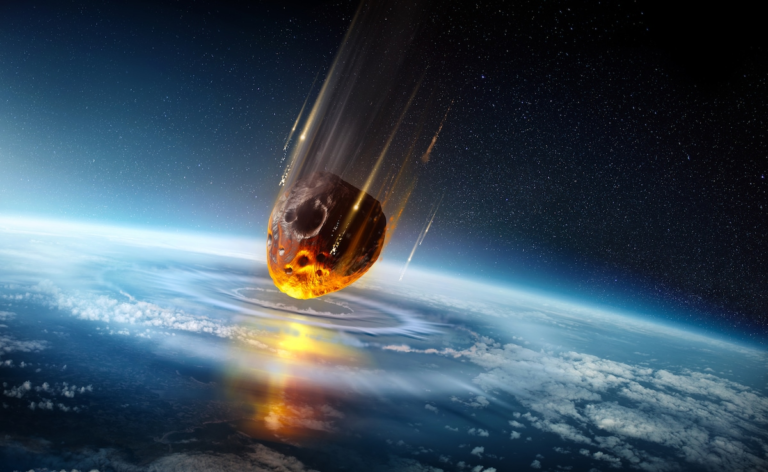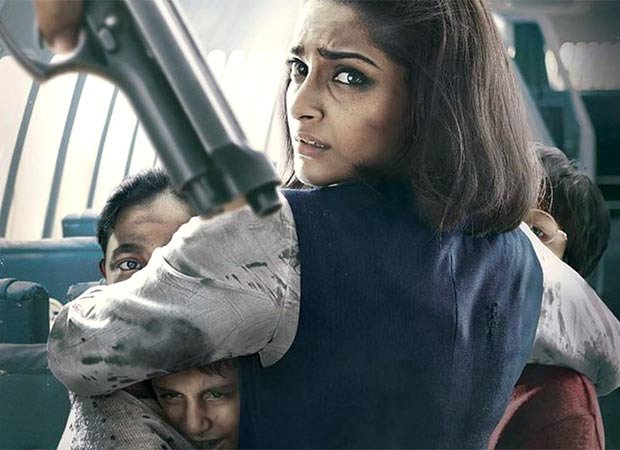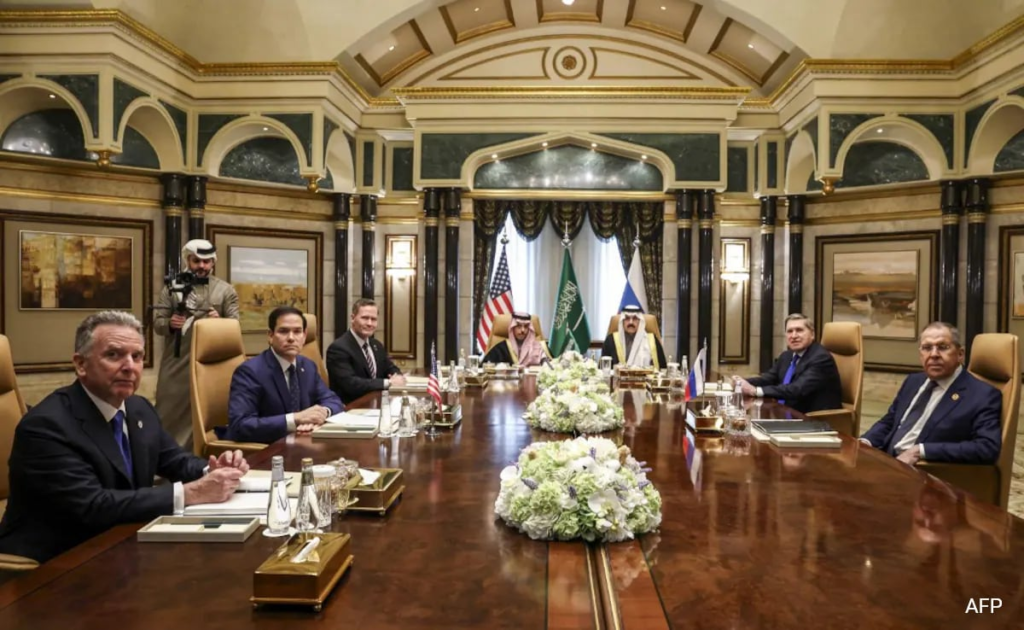
As world leaders gathered in Munich, Germany, for Europe’s top annual security conference, placating, pleasing, and managing US President Donald Trump stood as a top agenda. Trump’s phone call to Russia’s Vladimir Putin, US Vice-President J.D. Vance’s disruptive speech challenging Europe, and, by association, the very nature of trans-Atlantic alliances, and demands to end the Ukraine conflict, has led to a mad rush to host such a process, in the Gulf. The question that perhaps comes immediately to mind, even though the conflict in Gaza remains a major global flashpoint, is, why?
The Meeting Between Rubio And Lavrov
Russia and the US are preparing to start initial consultations on Ukraine following an ice-breaking meeting between US Secretary of State Marco Rubio and Russia’s Foreign Minister Sergei Lavrov in Saudi Arabia’s capital Riyadh. For Saudi Arabia and its powerful heir-apparent, Crown Prince Mohammed bin Salman, this is a moment of both regional and global reckoning. Gulf powers in the Middle East have now been for a while re-positioning and re-posturing their geopolitics. This process started much before Trump’s return to the White House—arguably, prior to even the Russian war against Ukraine. The roots of this shift lie in two main realities. First, a change in the construct of global power contestation, that is, a bi-polar competition between the US and China and a demand for multipolarity by a host of middle powers looking to secure their own interests and not get caught in the Washington-Beijing dynamics. The second reality relates to a general idea of the US becoming increasingly unwilling to mobilise militarily power to protect its allies.
Reconsidering America’s Role
Regional powers such as Saudi Arabia and the United Arab Emirates (UAE) are evaluating the very fundamentals of the decades-long American hegemony, which has provided security blankets in the region. This also provides them with an opportunity to build their own geopolitical repertoire as middle powers with their own agency, instead of being viewed as client states, a tag that has plagued many of them for decades. The UAE as well has thrown its hat into the ring, as Ukrainian President Volodymyr Zelenskyy landed in Abu Dhabi, mere hours after both Russia and the US eluded to excluding Kyiv from talks regarding Ukraine’s own future (Zelenskyy later cancelled a planned visit to Saudi). While this position by the Trump administration delivered tremors across European capitals, it has also played into an increasingly constrained space between Riyadh and Abu Dhabi for regional influence. And peace diplomacy, or mediation, is the flavour of the day.
However, the proverbial gold-rush to host Ukraine talks has more solid foundations in regional competition than an international one. For long, Oman has been the state that has consistently pitched itself as the main mediator, playing the role of ‘Switzerland of the Middle East’, where Muscat seemingly prioritises neutrality and offers a common ground for warring parties, such as Saudi Arabia and Yemen’s Houthi militia, or even the US and Iran, to talk.
The Qatar Question
Saudi Arabia and the UAE installed a blockade against Qatar between 2017 and 2021 for what they saw as Doha not aligning and punching above its weight, and, more specifically, for its support for Political Islam. But the Qatari leadership had another trick up its sleeve to ratchet its power quotient. In February 2020, under Trump’s first tenure, the Taliban in Afghanistan and the US signed a historic agreement for the latter’s exit from a two-decade long war in the country. Doha hosted the political office for the Taliban, and managed Kabul, to deliver this outcome to a president who, more than anything else, adores deals. This “success” gained Qatar the title of becoming America’s first and preferred ‘major non-NATO ally’ in the region. Today, Qatar also hosts America’s largest military base in the Middle East. For others, such as the UAE, the meteoric rise of Qatar’s influence in Washington was seen as a challenge. Within Abu Dhabi, questions were raised with Emirati diplomats in the US on why the Taliban’s office was not hosted in either Abu Dhabi or Dubai.
Saudi And UAE Have Bigger Goals
For Saudi Arabia, despite its functional relations with Russia and China alike, a security relationship with the US remains paramount. The same strategic aim is consistent for the UAE as well, one of the few Arab states that normalised relations with Israel as part of the Trump-brokered Abraham Accords and which continues to have functional relations with Iran. Despite continuing pressures on Saudi Arabia and the UAE to help deliver lasting solutions to the Israel-Palestine crisis and the Israel-Hamas war, both have broader, long-term aims with regard to their positions as poles-of-power within a multipolar framework. Both Riyadh and Abu Dhabi share this world view with the likes of India, but American power projection is infinitely more critical to political structures in the Middle East. This is truer today after the experience of the Arab Spring, and, more recently, the collapse of the Bashar Al Assad regime in Syria at the hands of a self-styled ‘lapsed’ jihadist group, the Hay’at Tahrir Al Sham (HTS).
Is This The Future Of Mediation?
The Saudis are not stopping just at giving space to the US and Russia to debate Ukraine. As per reports, Riyadh is also open to hosting talks between Iran and the US over the former’s nuclear programme. The Saudi-Iran détente was achieved in March 2023 with the help of China, the main competitor to the US, and a state that has unreservedly supported Arab positions in Gaza. Beijing, meanwhile, also remains open to mediating and helping to bridge political gaps across the region. Chinese President Xi Jinping’s visits to the region have been welcomed with gusto by Saudi Arabia and the UAE alike, both as a function of being the world’s second-largest economic power and using this position to hedge risk with Western partners. The future of mediation between the Riyadh-Abu Dhabi-Doha trifecta is a cat and mouse game within the Arab construct. External powers such as the US, Russia, and China, are part of the utility kit. This push for one-upmanship will have a tremendous impact on regional politics where in the coming years economic and political competition is only expected to increase.
(Kabir Taneja is Deputy Director and Fellow, Strategic Studies Programme, Observer Research Foundation)
Disclaimer: These are the personal opinions of the author
